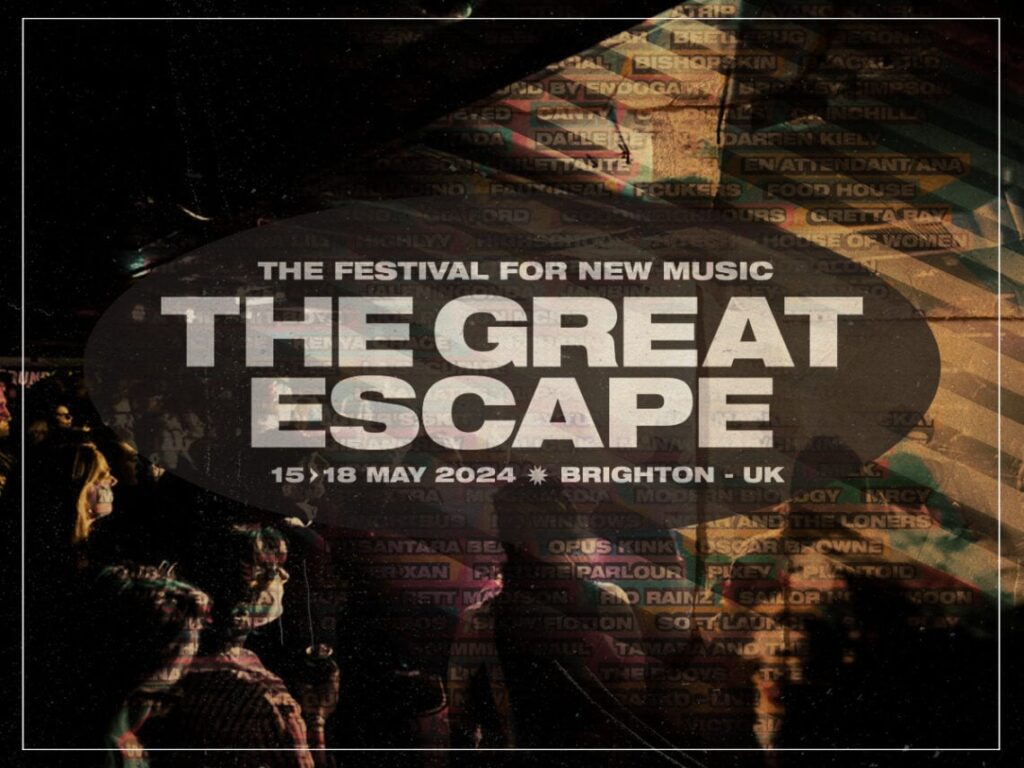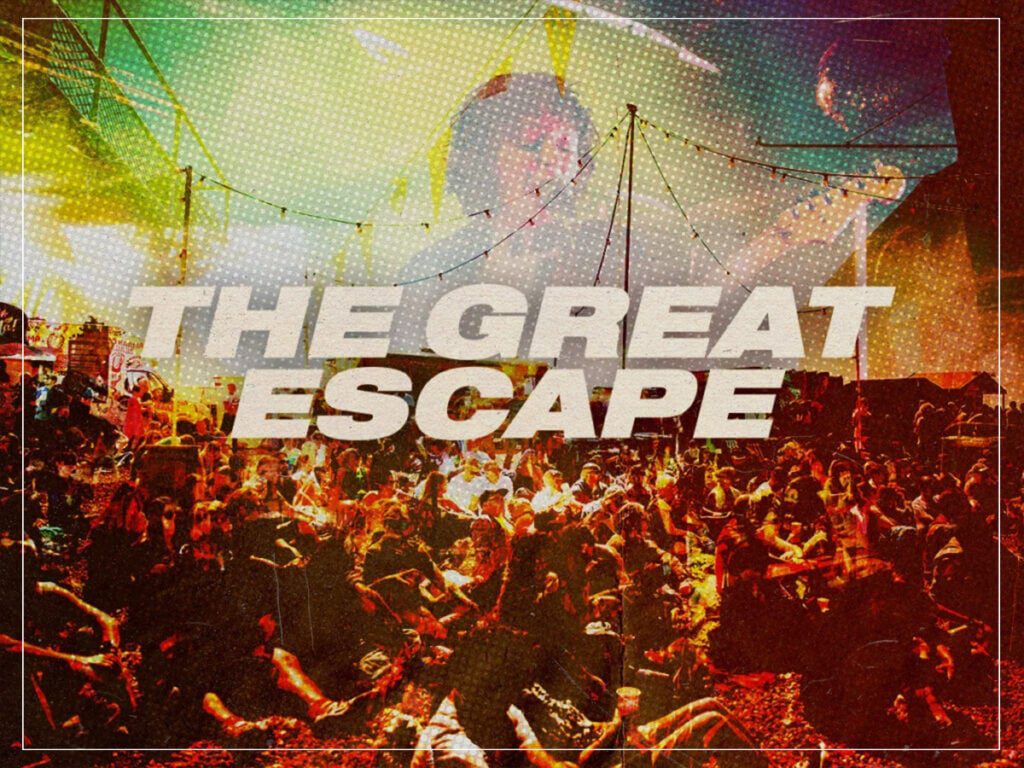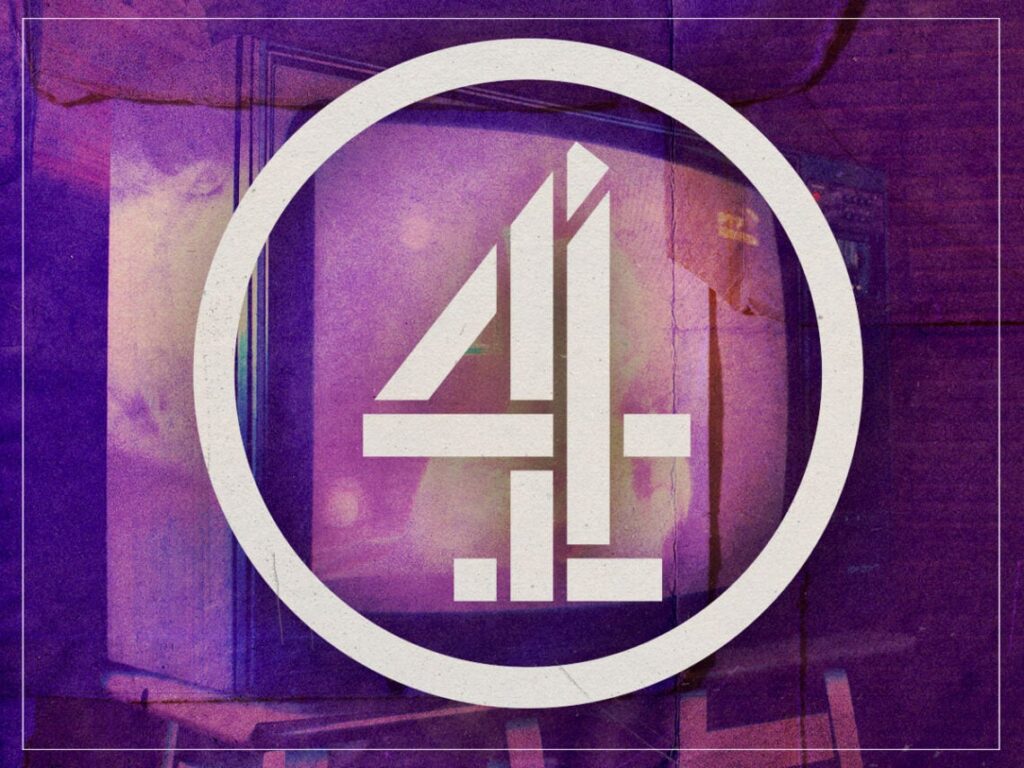The Great Escape continues with disappointment and difficult decisions on all sides
 Posted On
Posted On
(Credits: Far Out / The Great Escape)
With red paint splashed over the front of a Barclays branch in Brighton, day two of The Great Escape unfurled amidst continuing controversy. With a third of the lineup having dropped out, and criticism filling the social media comments for those that decided to still play, the energy of the festival has been utterly marred by guilt, confusion and controversy.
The overwhelming feeling on the ground is that the festival this year is simply a lose-lose situation where no side can win. For the artists that have pulled out, there is disappointment from the fans present, who paid their ticket fee long ago, who sometimes went to a venue to find the stage empty. There has also been a palpable fear touted by the acts in the area that they may never be booked by the festival again.
This is reflected in the refusal to comment coming from many of the acts we approach, with most putting out a simple statement withdrawing from the festival but not wanting to speak too loudly about the circumstances surrounding it. For the artists who played their sets, it’s just as difficult, being met with mounting criticism as Instagram accounts dedicated to the boycott began directly tagging and calling out acts on the lineup. There was also a distinct lack of energy from the crowd, which, although still packed as the festival was sold out, seemed to not want to be seen having too much fun.
Irish band Kneecap decided to play their set despite previously pulling out of SXSW for similar sponsorship reasons. In an interview with Irish News, the band addressed the situation as criticism from their fans mounted against the acutely political act. Mo Clara of the group said, “A lot of unfair pressure is being put on artists instead of focusing on getting the festivals to divest from these banks,” before adding, “We’re not the ones investing in Barclays.”
All in all, the atmosphere was clearly one of sadness and disappointment that a usually thriving and exciting event had been damaged. “I think that it’s really disappointing that they’ve kept the Barclay sponsorship considering they’re funding genocide, but also Great Escape is such a great opportunity for small artists to get discovered, so it’s sad it’s been tarnished,” one photographer told us, having decided not to collect her delegate pass and not attend any official events.
Another photographer who did shoot at the festival shared the same sentiment. “I don’t necessarily think it’s fair to punish The Great Escape for having Barclays as a sponsor given that the whole idea of it is supporting emerging artists and local venues and that costs money,” she said. Later adding hope for the future as she said, “Maybe from now on festivals will start looking into where their sponsor’s money goes.”
For context, sponsorship from Barclays comes indirectly via LiveNation, the multi-billion dollar conglomerate at the heart of the live music industry, which further muddies the predicament of organisers. The Great Escape is one of countless festivals and venues with ties to LiveNation, but was targeted as part of a selective campaign by the BDS movement.
Despite all the negative hubbub, day two of the festival was held together by international artists. With many having flown in just for the event after being booked to play the renowned showcase, boycotting the festival wasn’t an accessible option having spent hundreds to attend, and not having the time or connections to take part in the last-minute alternative charity shows springing up. New York’s booming indie scene dominated with both Been Stellar and underground hero The Dare drawing big crowds. Elsewhere, Australia’s Battlesnakes put on a high-octane show at Chalk.
But as with day one, the most exciting slots of the weekend were predominantly relegated to the alternative showcases. As acts dropped out of the official lineup, other venues in Brighton were swiftly snapping them up for shows elsewhere. Rock duo Fraulein pulled out of their festival slot last minute and instead played a free entry set at The Mesmerist. Similarly, Brighton’s local music scene was out in full force with acts like Soft Top, Hutch, Maximillian and Van Zon playing alternative line-ups, many of which were billed as fundraising events in response to the controversial sponsorship.
All in all, the usually action-packed festival was a low-energy affair. With so many lineup slots empty, crowds conscious of the message their presence might inadvertently send and smoking areas heavy with political debate rather than the joy of live music, The Great Escape will certainly have felt the impact of the boycott, even if it was more energetically than economically.
Visit here to read a wider piece exploring the boycott of The Great Escape: “I feel as if I am to be judged”.


